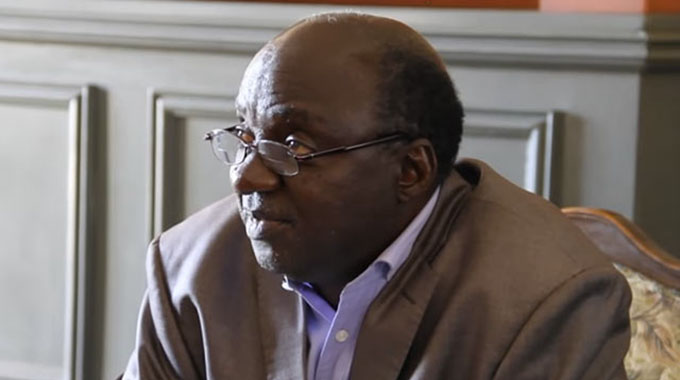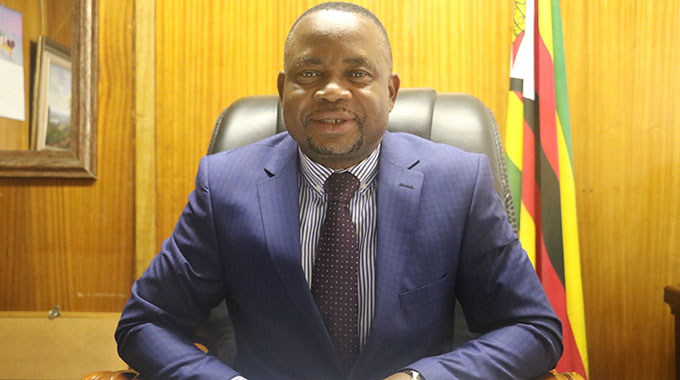‘Recognise strides in women progress’

Rumbidzayi Zinyuke and Remember Deketeke
As Zimbabwe joins the global community in commemorating International Women’s Day today, the Government has stressed the need to recognise the progress made by women in advancing gender equality while taking crucial steps to provide comprehensive support to survivors of gender-based violence through one-stop centres.
The day acknowledges the advancement of women in all socio-economic spheres while promoting the ongoing fight against gender-based violence and celebrating the resilience of survivors.
It advocates the existence and continuous improvement of one-stop centres, demonstrating the country’s commitment to achieving gender equality and creating a future free from violence for all women and girls.
Zimbabwe joins the world in celebrating the International Women’s Day, reflecting on the obstacles that women face and the strides they have made in pursuit of gender equality and equity.
This year’s theme: “Invest in women: Accelerate progress”, highlights the necessity of advancing women’s empowerment in all contexts and resonates with the obstacles women face in achieving gender equality.
Speaking at a media conference in Harare yesterday, Women Affairs, Community, Small and Medium Enterprises Development Minister Monica Mutsvangwa said women’s immense contribution towards achieving many goals was invaluable. “Women around the world have shattered glass ceilings, broken barriers, and proven overwhelmingly that they are capable of achieving greatness in every field. Their contributions to society, culture, science, politics, and the economy are invaluable. Yet, in spite of these achievements, we still have a long way to go in ensuring factual equality for all,” she said.
“Women’s economic participation and their ownership and control of productive assets speeds up development, helps overcome poverty, reduces inequalities, maternal and infant mortality and improves children’s nutrition, health, and school attendance. When women have equal access to education, employment, and financial resources, economies thrive.”
Against all odds, some women had broken the glass ceiling and now occupy influential positions.
For instance, the Zimbabwe Newspapers Group this week appointed Victoria Ruzvidzo as the first ever female editor of its flagship newspaper, The Herald.
In an interview Ruzvidzo urged women to work hard and desist from being cry-babies. She said challenged women to demonstrate their capabilities in whatever top position they are placed.
“As a woman and as the first female editor of The Herald, I feel humbled that my superiors have demonstrated confidence in me. They have trusted me as a woman to take up this position that has been occupied by men only for over 120 years. My goal is to go above and beyond what is expected of me.”
Ruzvidzo said women should strive to break barriers and claim their stake in the country’s high decision-making panorama, stressing that through mentorship more and more women would rise to the top.
“In the process women need not be confrontational, but should see men as partners or enablers in some instances, barring the fact that globally the patriarchal system can be too harsh for comfort”
Founder of the Afrason Aquaculture and chief executive of one of the country’s biggest public transport companies CAG Traveller’s Coaches Dr Afra Nhanhanga said men should strive to train more women to perform roles that were previously male dominated.
“Now since I was trained by a man, I would love to see more men grooming women because it will contribute to the end of poverty. Apart from managing a huge transport company, I grow groundnuts, produce peanut butter, rear and sell chickens and I am also involved in fish breeding and aquaculture.
She encouraged women in towns to be self-sufficient by having backyard gardens to grow vegetables as cost cutting measures.
Gender-based violence is also a key area of focus during the commemoration of International Women’s Day every year.
In Midlands, where the main celebrations will be held this year, more than 8 000 survivors of gender-based violence have received vital support over the past nine years to help them get through their encounters.
Ministry of Women Affairs, Community, Small and Medium Enterprises Development Gweru one-stop centre administrator Ms Nyarai Mubaiwa said the centre had yielded positive results since its inception in 2015.
“We have offered services to more than 8 000 survivors since we started. We also offer services to survivors living with disabilities although the number has gone down owing to mobility challenges.
“The one-stop centre has yielded positive results because we have seen an increase in the number of reported cases meaning that the community now has knowledge of what to do when they encounter violence, especially sexual violence cases,” she said.
The Gweru one-stop centre, at the Provincial Hospital, is one of six centres that have been established jointly by the Ministry of Women Affairs, Community, Small and Medium Enterprise Development and the Ministry of Health and Child Care with technical support from the United Nations Population Fund (UNFPA).
This was done with financial support from the Governments of Britain, Ireland and the European Union under the Health Resilience Fund and the spotlight initiative to eliminate violence against women and girls’ which was funded by the European Union and Japanese pharmaceutical company Takeda under the Women at the Centre Programme.
The centre serves survivors from all eight districts in the Midlands and aims to provide comprehensive services to survivors of gender-based violence under one roof, mitigate the risk of secondary trauma of survivors, promote integration of services which are survivor centred and increase access to comprehensive multi-sectoral response service needs for survivors.
The Ministry of Health and Child Care has seconded staff to offer services for clinical management of sexual abuse, while legal aid is provided by a paralegal officer from the Zimbabwe Women Lawyers Association. The Victim Friendly unit also provides services through the police office within the hospital premises and Ministry of Women Affairs, Community, Small and Medium Enterprises Development provides psychosocial support and overall administration of the centre.
UNFPA gender and GBV programme analyst Mrs Patricia Mujajati said through the spotlight initiative, nearly US$6 million had been invested towards the response to gender-based violence by UNFPA which targeted prevention and service provision.
The one stop centre was a model that worked well for the survivors, minimising costs for the survivors as all service providers were found in one place.
“It is convenient for the survivors but we still have gaps in ensuring follow up and proper case management of the survivors. We are seeking support from development partners and the Government to make sure we have a properly functioning case management system within the country.
“But as a one-stop centre, this model works to ensure that survivors have closure and to ensure that the perpetrators are brought to book,” she said.
To complement the one-stop centre, UNFPA has also supported the set-up of safe shelters run by Musasa.
The Gweru shelter was designed and equipped to provide a comfortable, private and secure setting to support the healing process of the victims and survivors. Comprehensive and coordinated services include provision of emergency shelter, psychosocial counselling, rehabilitation and social reintegration.
Musasa Project programmes officer Ms Princess Khumalo said the demand for a safe shelter was high among survivors of gender-based violence, most of whom were young victims of sexual violence.
“The shelter has the capacity of holding 30 clients at a given point. We receive about 300 survivors per month from all over Midlands. Most of the cases of physical and economic abuse. We also have rape and it is mostly adolescents who are victims of rape. The perpetrators are mostly the relatives, that trusted person that they live with in the home or communities. This means that our adolescent girls are not really safe out there whether in the home or in the public spaces,” she said.
“We get survivors from across the province and they come through service providers like the victim friendly unit, Ministry of Health, the one-stop centre, from the courts and some referrals are also made by community based structures. They can stay at the shelter for as long as there is need for services.”
Livelihood activities are also an important component of shelter services, both as a move towards sustainability of shelters as well as providing an opportunity for life skills training for survivors at the shelters.








Comments